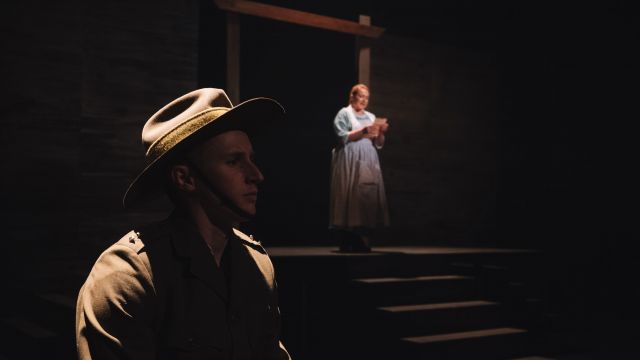Soldier Boy
Soldier Boy tells the story of James (‘Jim’) Martin (Oliver Tapp), who enlists at age 14, and serves at Gallipoli, the youngest Australian to die there in 1915. Australian audiences will have varying responses to the play. Some – younger folks - will learn about the costly, futile Gallipoli campaign (and the play sometimes seems designed for them) for the first time. Others will acknowledge the facts of what is depicted – the idealism that corrodes, the constant jeopardy, the casualties at now legendary places like Lone Pine and The Nek, the black humour, the heat and the cold, the lack of water, food and proper sanitation, the flies, and diseases... But others again may expect more than this because they know all this already – especially students of history or those who read Albert Facey’s immensely popular autobiography A Fortunate Life.
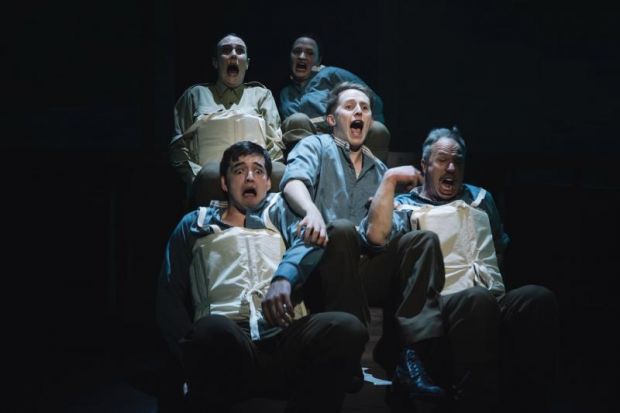
Playwright Anthony Hill and director/dramaturg Beng Oh circumvent the familiar by focussing on young Jim’s trajectory from schoolboy to soldier, from a something-to-prove child to a disillusioned teenager, by employing a circular structure. They bookend the story with Jim aboard a hospital ship, sick with typhoid, and burning up with fever. So, Jim’s story is made up of Jim’s memories, his fever dreams. In a program note director Beng Oh says, ‘...we have eschewed documentary theatre and naturalism in favour of a heightened staging that distorts and refracts but is nevertheless emotionally truthful.’
Whether or not this mode is always successful – or even at times discernible – Beng Oh gives us striking images of soldiers at war – not just in bewildering battle, but in the endless waiting and enduring that is warfare. Much of the play’s emotion comes in the letters Jim, seated isolated in a pool of light, writes home – frustratingly never getting any reply.
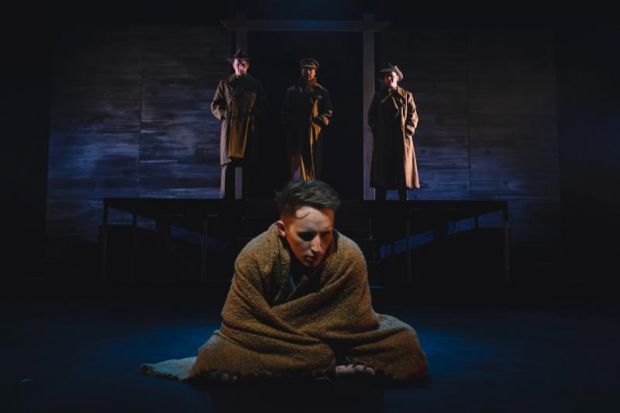
But pre-war, there’s a surreal scene back in Melbourne in which Jim blackmails his parents (Laura Iris Hill and Philip Hayden) into giving permission for him to enlist (and lie about his age): it’s repeated consecutively word for word four times. Of course, Jim remembers that - the fatal turning point in the story. Later, when Jim’s troop transport is torpedoed, the struggles of the drowning men under and above water is masterfully staged by Oh – and beautifully lit by Sidney Younger.
Younger’s lighting in fact makes a huge contribution to the storytelling – from Jim’s sunny schooldays, full of patriotic nonsense, to a Gallipoli campfire scene where worn out troops greet Jim and newcomers, and then to a surprise Turkish attack where Jim and his comrades shoot wildly into black darkness, and so to the gloom and horror that settles on Jim’s Mum and Dad back home...
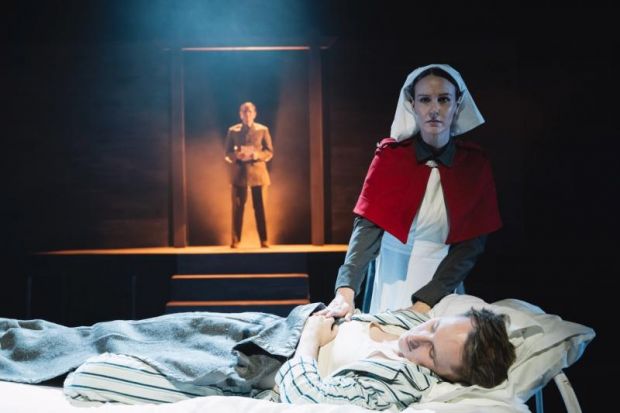
The device of the ‘fever dream’, notwithstanding, however, it’s in the nature of things that once Jim is there at Gallipoli, he can only be another soldier, and the play does settle a little into ‘this happened and then that happened and this this...’ That is, objective scenes that tell us what it was really like. Unlike Anthony Hill’s novel, we can only experience things with Jim as an observer; we can only rarely share his thoughts. As a dramatic character, he scarcely interacts with his comrades. The result is that the story – that’s also a partial debunking of one of our national myths - can feel just a little flat despite the best efforts of all concerned.
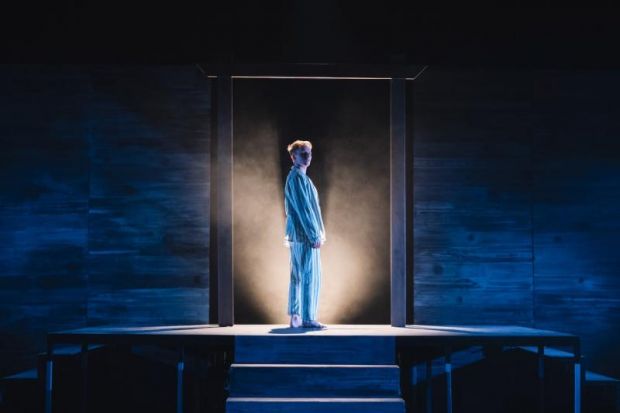
One senses various constraints on Beng Oh with this project. For a ‘war story’ that isn’t the usual war story, there seem to’ve been tight budget restraints. Viv Hargreaves’ simple timber set must stand in for many locations – but its great virtue is that it provides a series of resonant frames for a number of scenes – silhouetting grieving soldiers through to adding finality to Mum’s grief back home. Besides Younger’s lighting, Jack Burmeister’s excellent sound design – heightened natural sounds as well as cheerful, faintly heard songs of the period – lifts the austerity of the set into imaginative territory. As to the small cast of eight, there’s a necessity for doubling. So, Ashlynn Parigi and Charlie Veitch play Jim’s younger siblings and soldiers in Jim’s platoon – the latter very successfully. Emily Joy is a kindly Matron but has great fun as a goofy soldier. Mark Yeates and Mark Opitz play a variety of authority figures that Jim encounters on his way to war and when he gets there – with Opitz finally wrapping up the story as Narrator.
Michael Brindley
Photographer: Steven Mitchell Wright
Subscribe to our E-Newsletter, buy our latest print edition or find a Performing Arts book at Book Nook.

